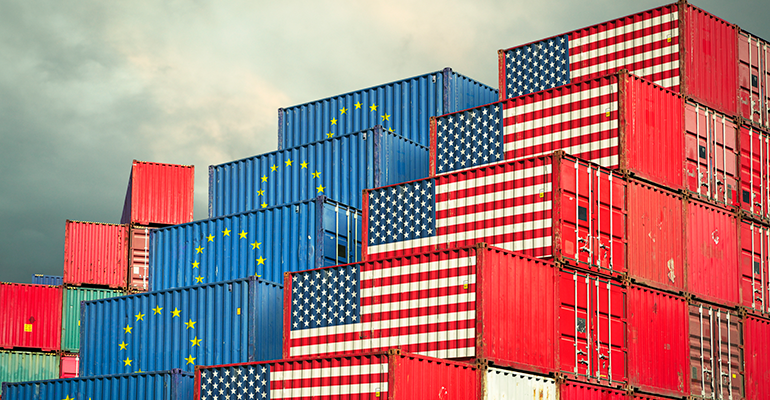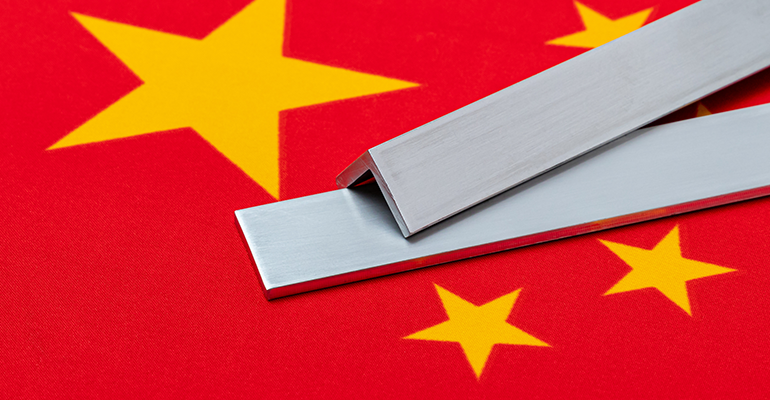News
EU extends suspension of retaliatory tariff on US-made peanut butter
31 Jan 2024The European Union (EU) has extended its suspension of retaliatory tariffs on US-made peanut butter and juices until 31 March 2025, in charges originally imposed in response to tariffs on steel and aluminium imports.
In a move set to boost transatlantic trade, the EU is to prolong the suspension of rebalancing tariffs in return for the US extending the suspension of its tariffs for EU exports of steel and aluminium as of 1 January 2024.

“This important extension is the outcome of intensive engagement with the US and serves two key EU objectives,” said Valdis Dombrovskis, the EU Commission’s executive vice-president and commissioner for trade.
“First, we are giving our importers and exporters the market stability and business confidence to continue to trade smoothly.
“Second, it provides us with the necessary space to continue pursuing the full and permanent removal of 232 tariffs on EU exports, as well as working on addressing global overcapacity and decarbonisation of steel and aluminium industries.
“We are committed to ensuring that transatlantic trade in steel and aluminium is undistorted and that our exporters are treated fairly.”
Metal-based tariffs imposed by former US president Donald Trump in 2018
The extension is expected to save EU steel and aluminium exporters approximately €1.5 billion in tariffs per year, with the EU negotiating the eventual removal of 232 tariffs on EU exports for good.
The tariffs were imposed in 2018 by then-US president Donald Trump, when a 25% import tariff was levied on steel and a 10% tariff on aluminium.
The EU responded by imposing a series of tariffs on 180 types of products worth more than €2.76 billion ($3 billion) of US goods.
Goods that fell into these categories, alongside steel and aluminium, included agricultural products, such as peanut butter and juices.
In attempts to redress the trade dispute, the Biden administration agreed the suspension of tariffs in 2021, once Trump left office.
 © iStock/narvikk
© iStock/narvikk
“This is welcome news to the peanut industry and all those working in the supply chain to produce peanut butter for overseas markets,” said Richard Owen, president and CEO of the American Peanut Council (APC).
“But we still have a long way to go to recoup our losses of more than $20 million due to a tariff war we didn’t begin, yet all the same are feeling its deep impact.”
EU’s tariffs added to drop in exports of peanut butter and other peanut-based products
According to the APC, the EU’s tariffs contributed to a drop in exports of peanut butter and other prepared peanuts from a high of nearly €20.2 million ($22 million) in 2017 to €1.3 million ($1.4 million) in 2020.
Since the 2021 agreement to suspend the tariffs, US exports of peanut butter have climbed to €2.1 million ($2.3 million). However, US peanut butter exports to the EU slipped again in 2023, now down 18% to €1.4 million ($1.5 million) year-to-date through October 2023.
The APC highlighted that prior to the retaliatory tariffs, the EU was a promising growth market for US peanut butter, as more European consumers were being introduced to the product and demand was growing, due in large part to APC’s export promotion work.
“Compound the past five years of lost market access with increasing input and labour costs, all while peanut prices remain relatively stable amongst other food price inflation, and it has turned into the perfect storm for peanut growers and peanut butter exporters to the EU,” said Owen.
“We need to continue working until the promise of an impending tariff on peanut butter is no longer on the table.”
 © iStock/JJ Gouin
© iStock/JJ Gouin
China’s ‘dumping’ of flat-rolled products in EU gives country unfair advantage
Another motivation for both parties to resolve the tariff dispute is to prevent the “dumping” of aluminium-based flat-rolled products (FRP) on to the EU market by China, giving them increased influence over the global aluminium trade.
Only last week, the European Commission extended anti-dumping duties on aluminium road wheels from China for another five years.
The duties on aluminium road wheels from China remain at 22.3%, which the Commission said ensured fair competitive conditions on the EU market between imports from China and domestic production.
As such, they have been complemented by anti-dumping duties of between 9% and 17.5% on aluminium road wheels from Morocco, which were confirmed on 12 January 2023.